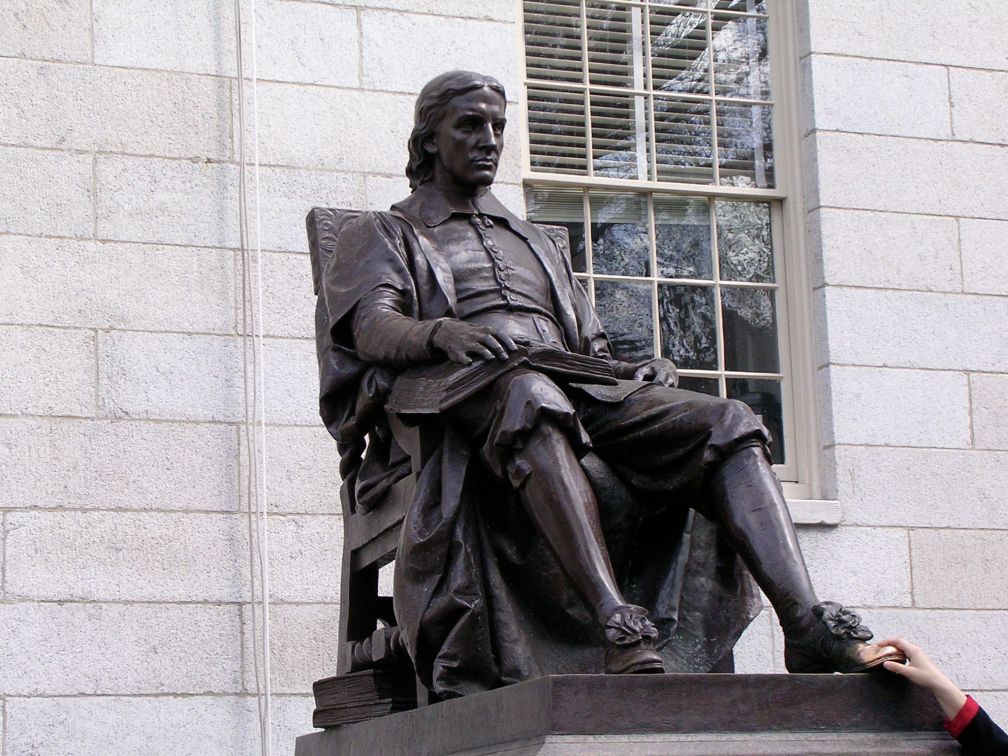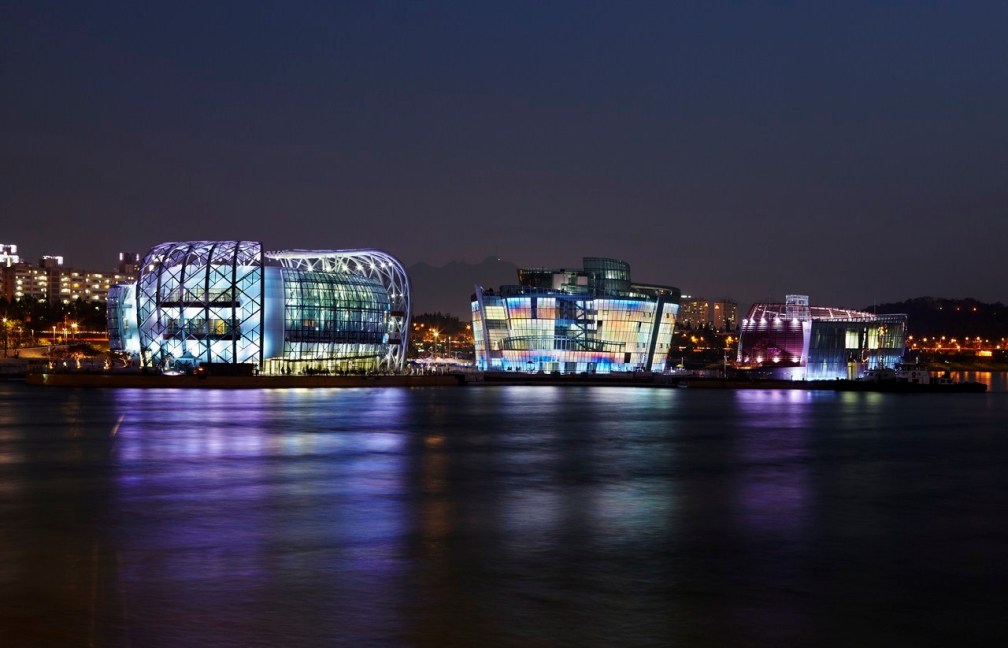What the fuck. Seriously, what the fucking fuck. I get off a plane and think that everything’s all right with the world until I take the train home and notice that there’s a bit on the news about a ferry that sunk, with nearly three hundred people missing. I didn’t understand why it was on Korean news but after checking the Internet I realized it had happened in Korea.
Continue reading
Monthly Archives: April 2014
Harvard, Korea’s Harvard
I dread meeting new people with my grandmother. I love her dearly, but every time she meets someone new with me, she will always bring up the fact that my dad went to a certain school in Boston. Well, not in Boston. No, not Tufts. Do I have to say it? My dad went to Harvard. We’ll be shopping at a department store and get into a conversation with a salesperson about something completely unrelated, like the energy efficiency of different appliances, and then she’ll just say that my dad went to Harvard. What? I understand that it’s a point of pride for her, but it is embarrassing when brought up unprompted to random strangers and whatnot. I mean, I respect my dad and think he is awesome, but I don’t go around telling random people that. And besides, what’s the big deal about a graduate degree from Harvard? I mean, my dad graduated at the top of his class at Seoul National University, which considering the hypercompetitive nature of Korean school I would think is a much more impressive achievement, but my grandmother only gets to that bit of information after dropping the H-bomb.
I was born in Cambridge while my dad was getting his PhD at Harvard and grew up in an apartment on Massachusetts Ave just a short walk from campus. That might explain why I never really got the whole Harvard effect. You know, the way you look at certain people differently once you learn they went to Harvard? Well, I guess it’s not specific to Harvard. New information that comes to light almost always colors your impression of people, like say a secret family or a former life as a vegan, but you can’t deny that Harvard tends to lend an aura that cannot be replicated by any other university. Placing Harvard in front of something just adds an air of gravitas and prestige to it. Harvard Law, Harvard graduate, Harvard sandwich. The dental clinic that I go to is called Harvardian Dental Clinic (because the dentist went to the Harvard School of Dentistry), and even though it’s a fantastic clinic, I’m guessing the main draw is the name.
This is a worldwide phenomenon, but Koreans seem to have a particular obsession with Harvard which manifests in the strangest ways. There was a Korean television drama about ten years ago titled “Love Story in Harvard,” which involved a romance between two Koreans, one of whom was attending Harvard Medical School and the other attending Harvard Law School. It was supposed to be a take on the movie Love Story (which takes place in Harvard) complete with tragic ending (spoilers for Love Story?), but the writers chickened out and made the girl miraculously recover from a terminal brain tumor or something in the finale. Harvard didn’t let them film on campus, which is why they shot things on the University of Southern California campus, and I know these things because I watched every single episode and I have a serious TV problem. And because the girl was played by actress Kim Taehee, who is so pretty. And also went to Seoul National University, which makes her living proof of an unjust god since she has both looks and 학벌.
학벌 (hakbol) is the name Korean give to a person’s educational background and the classification system that emerges around it. Although I can’t get into the details right now, suffice it to say that people seem to evaluate other people through a complicated system that uses the weighted and relative values of high schools, colleges, and graduate schools. Usually, the level of education would be an easy indicator (a PhD is better than a BA) but the prestige and reputation (but not necessarily quality) of lower institutions can sometimes trump higher graduate degrees. For example, even if you went to a better college than a graduate of my high school Korean Minjok Leadership Academy, some people still might regard the KMLA graduate more highly due to the weird mystique that comes with being a graduate of that institution, which has a certain je ne sais quoi that other high schools of similar quality don’t seem to have. It’s probably the whole living in the mountains of Gangwondo and wearing traditional Korean garb and all that jazz. And in most cases, overseas schools, particular American ones, tend to be valued more than Korean ones, because studying abroad presumes a certain socioeconomic background or an exceptional academic drive, although it really depends on the school. After all, a liberal arts college is likely to elicit blank stares from Koreans while a well known state school like UC Berkeley might be seen as impressive. But of course, Harvard trumps all.
I’m not quite sure why that is, aside from the usual “it’s Harvard!” explanation. I don’t even think people know much about Harvard except maybe that it’s in Boston. I’m guessing that the source of Harvard’s reputation is probably exposure, which really is a self-fulfilling prophecy. More people want to go to Harvard because of its reputation, and its stature becomes greater because of the notable people who go there and became famous because they went to Harvard. The one person that I hear about most regarding Harvard here in Korea is Hong Jung-wook, the current chairman of Korean media company Herald Corporation. Why do people think of Hong Jung-wook when they talk about Harvard? It might be because of Seven Acts, Seven Scenes, a best-selling autobiography he published in 1993, shortly after graduating from Harvard University. I haven’t read the book myself, but I’ve read enough summaries about how he idolized John F. Kennedy and studied really hard. A friend once described it as really pretentious and not contributing much, but since it did launch him into national prominence, I’d say it was an extremely cynical but brilliant bit of self-marketing by a 23 year-old Harvard graduate with political ambitions. Never mind the fact that he fudged a few key details, like saying he graduated summa cum laude when he actually graduated magna cum laude, people don’t remember that, they remember he graduated from Harvard. It may seem odd that someone whose primary accomplishment up to that point was graduating from college could write a best-seller and become famous for doing just that, but here in Korea, a sizable portion of the publishing industry is devoted to these oddly self-celebratory odes to academic accomplishment, which are mostly stories about people who studied who became people who studied real good. The proof of studying real good? You guessed it. Going to Harvard.
So Koreans really like people who went to Harvard. So those who can go will almost always take that opportunity, whether it be through undergrad or a professional degree. Usually it’s a professional degree, which isn’t quite as difficult as getting into Harvard College. I’m not saying it’s easy, but a surprisingly large number of prominent Korean businessmen and politicians have attended Harvard Business School or Harvard Law School, like the protagonist in Love Story in Harvard. The law school grads confused me for a while, because although I could see why business executives might need more training for international operations, I didn’t know why lawyers who were going to spend their entire lives in Korea and had already gone through some of the best law schools in Korea would spend more time and money (lots of money) to get a legal education they didn’t even need. After doing some research, I did find that these people didn’t spend three years in law school getting a JD but rather, spent a year getting an LLM (which is easier to get if you’ve already gone to Seoul National University’s law school I guess?) which made a little bit more sense, but still, I didn’t see what they got out of it. Sure, in some cases like for judges or professors-to-be it might help them gain a deeper grasp of the law, but for the vast majority of those people, it basically seemed to boil down to getting Harvard Law added to their resumes in exchange for one year of studying. After all, the layperson doesn’t know the difference between a JD and an LLM, but they do know what Harvard Law is.
Yeah, I’ll be honest, I wanted to go to Harvard when I was applying to universities, but that was mostly because I wanted to go back to Boston rather than any cultural pressures to go to the best school in the universe or whatever. I didn’t get in, which was at the time devastating, but I did get to go to Stanford, and I had a better time at Stanford, which is arguably as good a university as Harvard and even better in many regards (sports, the weather, the campus), than any time I could have had at Harvard. This weekend I’ll be at Harvard Law School, trying to figure out whether I should go there. The fact that I’m actually considering other schools is keeping my grandparents up at night. After all, they would like nothing more for both their son and their grandson to have gone to Harvard. But I’ll only end up there after carefully considering the alternatives and the pros and cons. And you know what? I don’t think being able to say “I went to Harvard” will make an impact on my choice. Sometimes I think I’m not a very good Korean.
Next week, The Most Korean will go on hiatus, probably. He’ll be on a trip through Spain and Italy for the next month or so, which means very little time for thinking about Korea, unless the topic is Korean tourists. If that is the case, don’t expect anything until mid-May, its very hard typing blog posts on iPads.
The Seoul Floating Island, or, Oh Se-hoon’s Folly
I lucked out in the military. I was stationed in USAG-Yongsan in the heart of Seoul, so when I went home, which was more often than the average soldier, it only took me a fifteen minute cab ride rather than an hours-long bus or train ride. As much as I liked the opportunity to transform for a brief period into a somewhat civilian, I didn’t enjoy the ride home. Every time I would have to cross the Banpo Bridge, and every time I would notice the Seoul Floating Island. Three interconnected platforms on my right, each displaying a building of Frank Gehry-inspired modernist curves of steel and glass, more sculpture than practical building. And every time, I couldn’t help but feel a sense of disgust and irritation bubble up from the depths of my soul.
Continue reading

